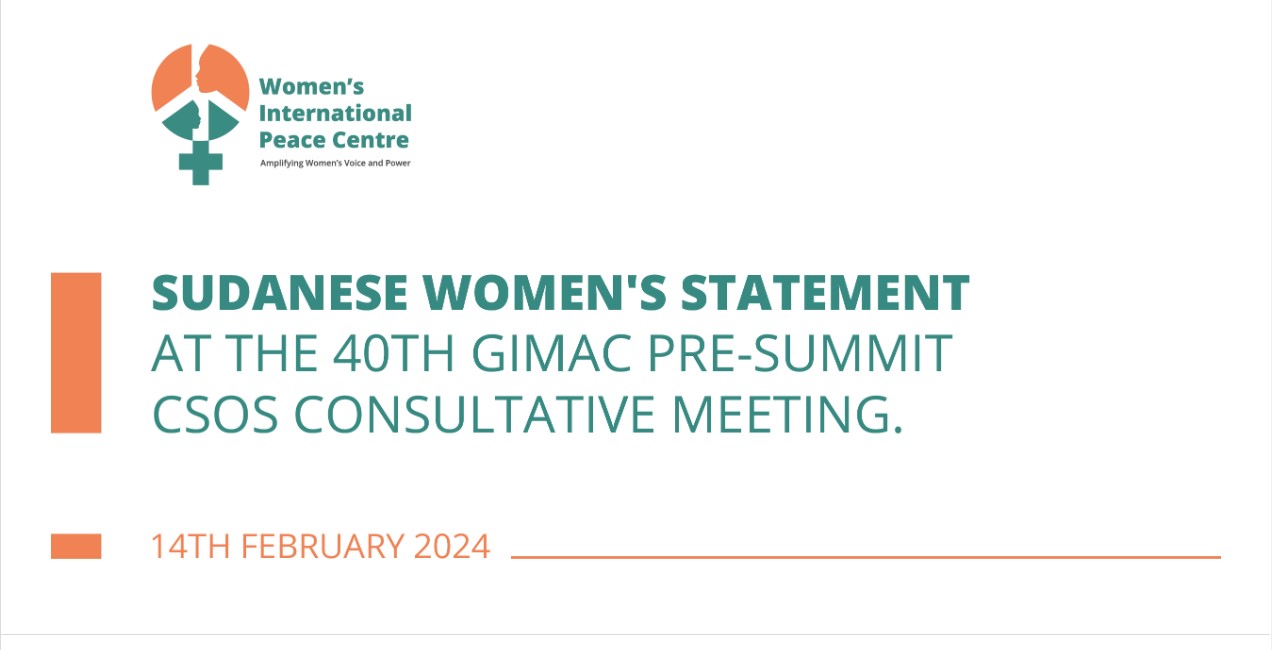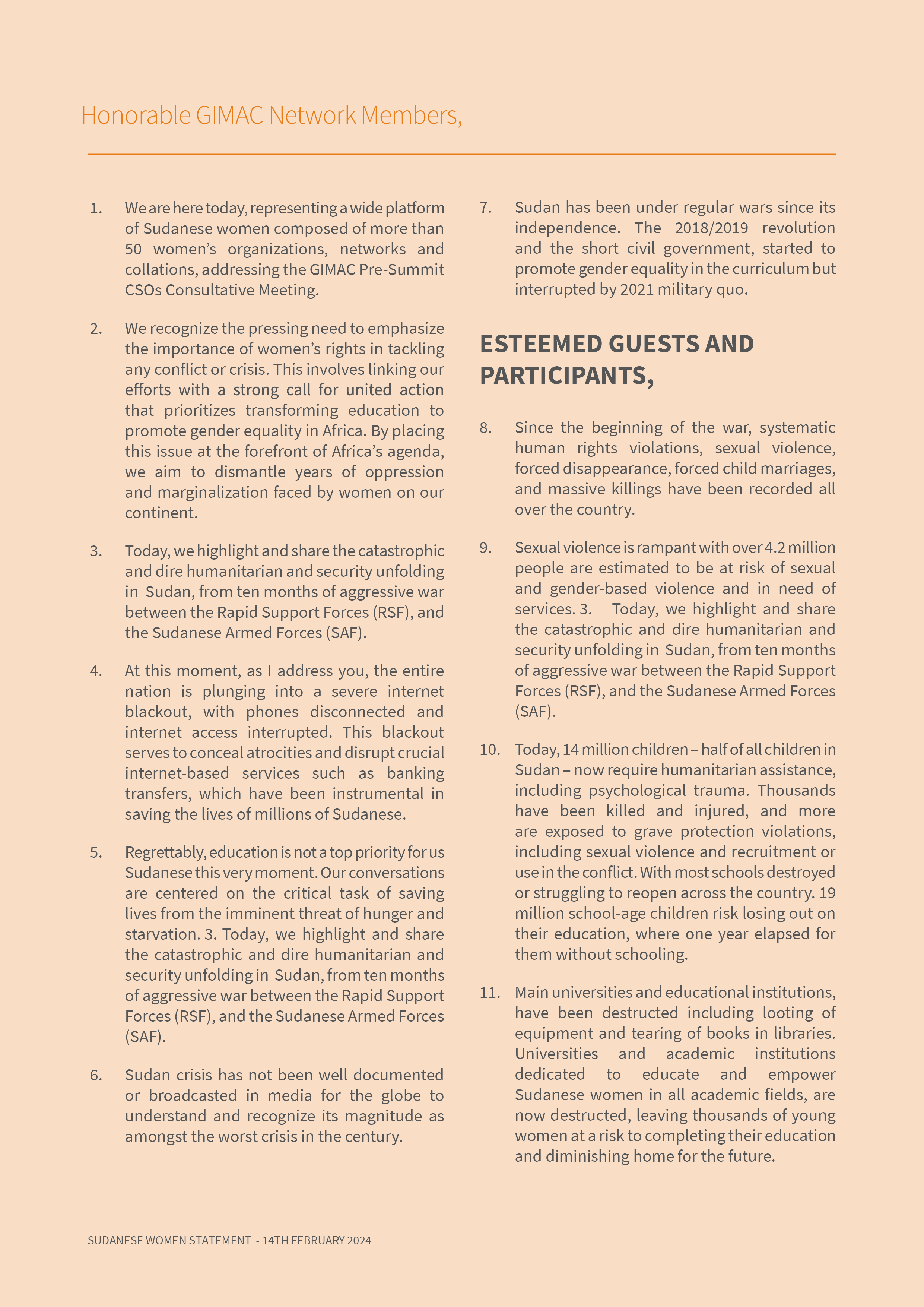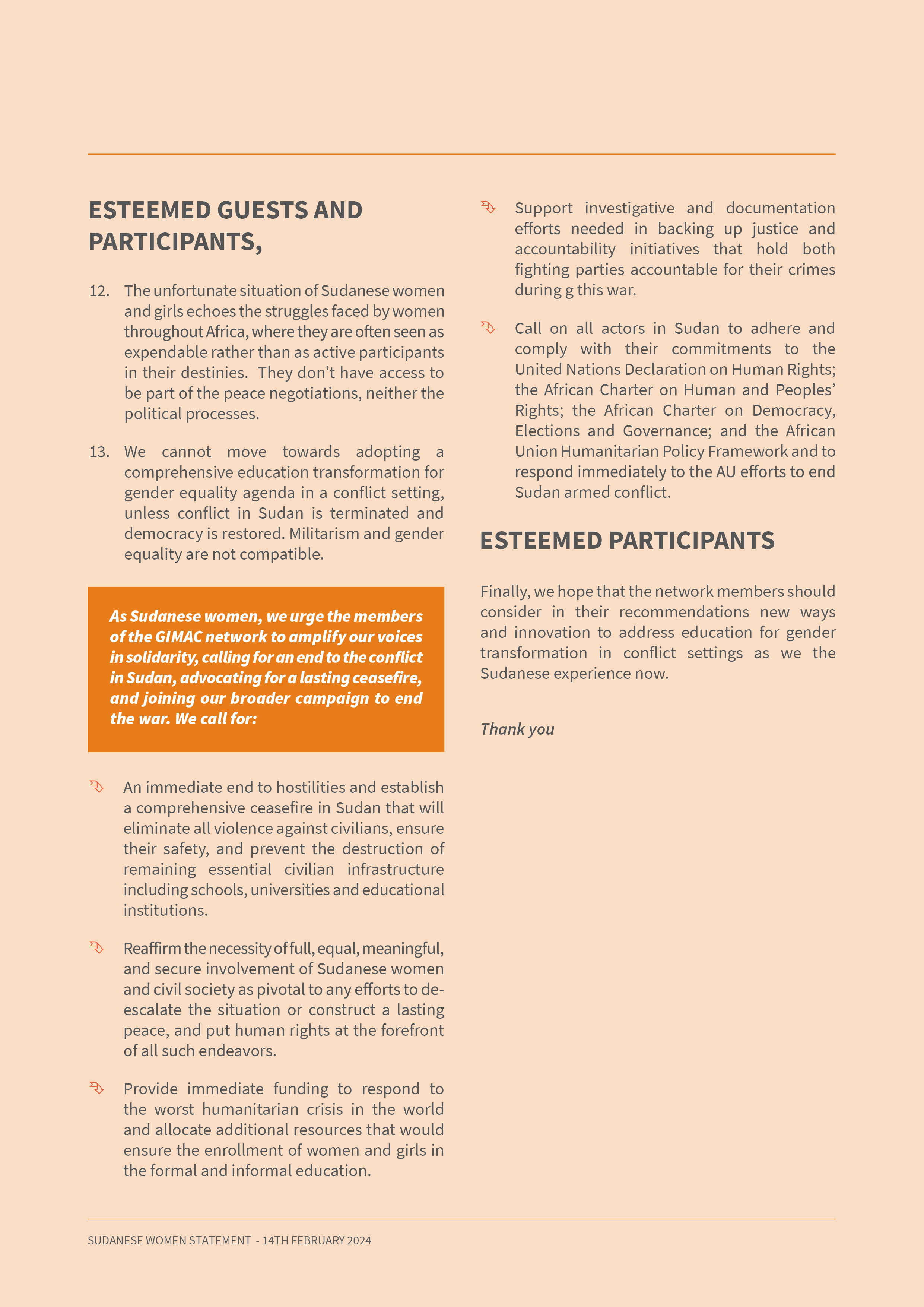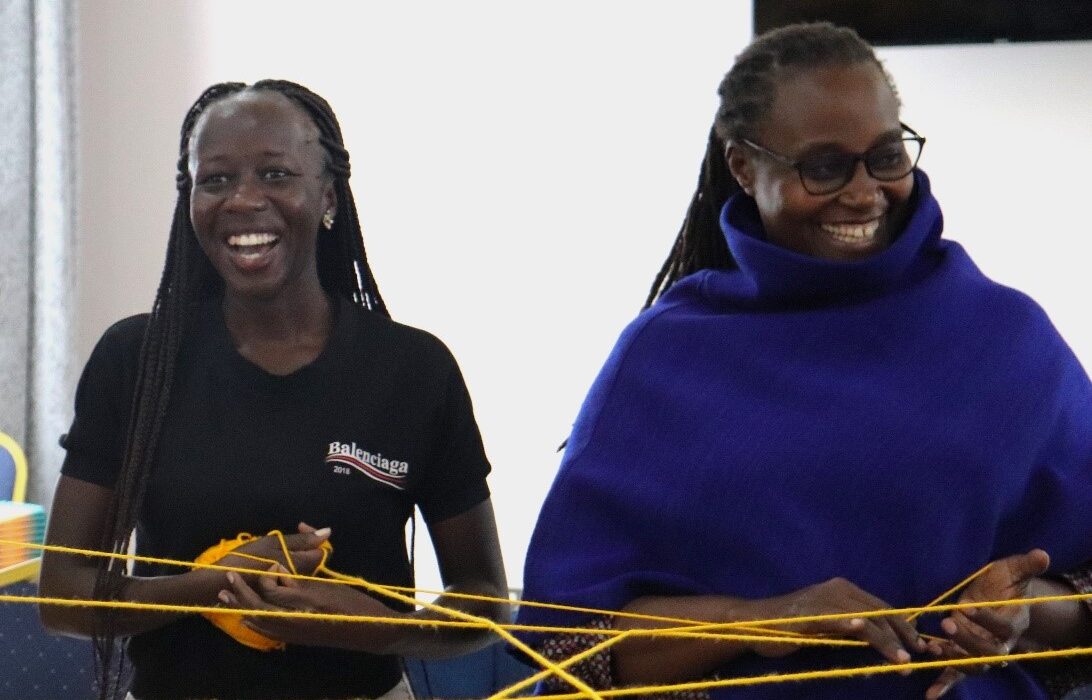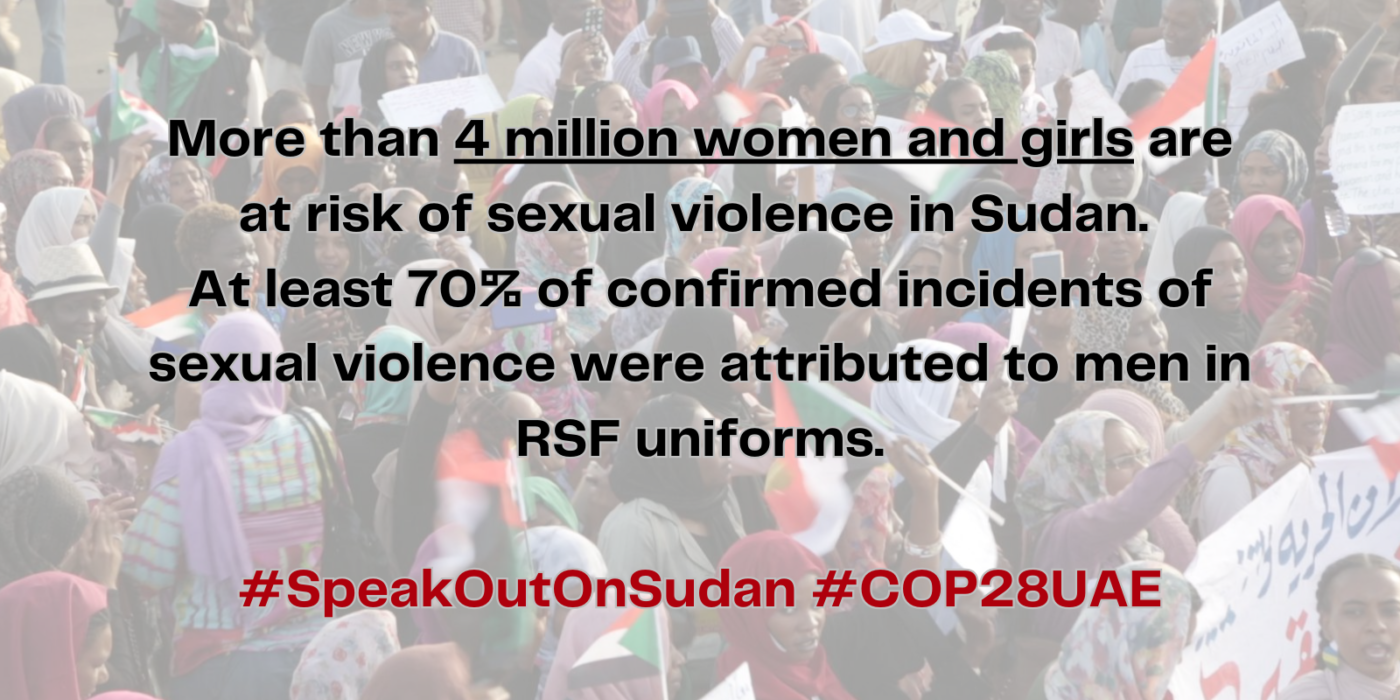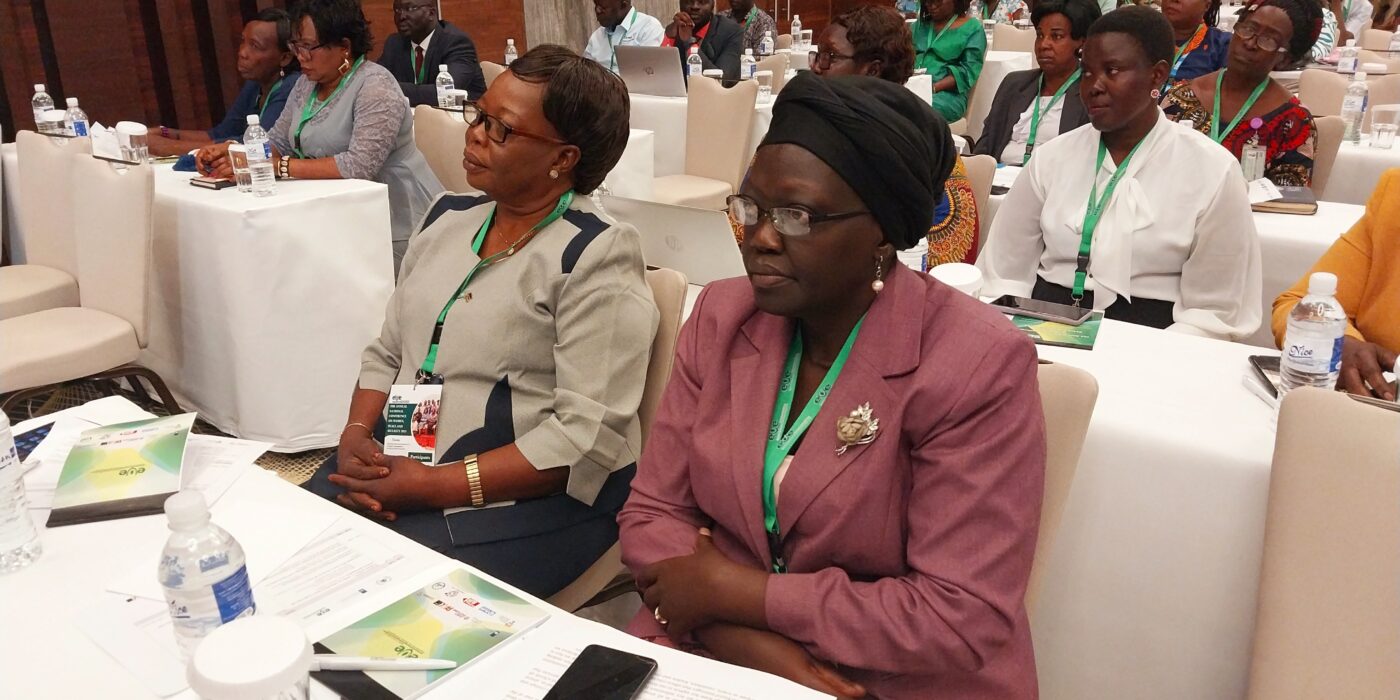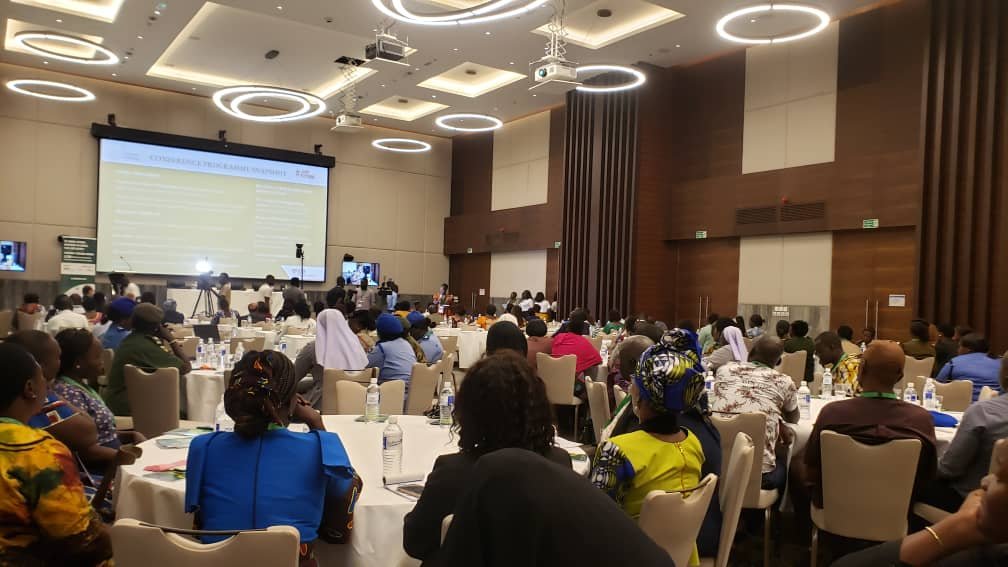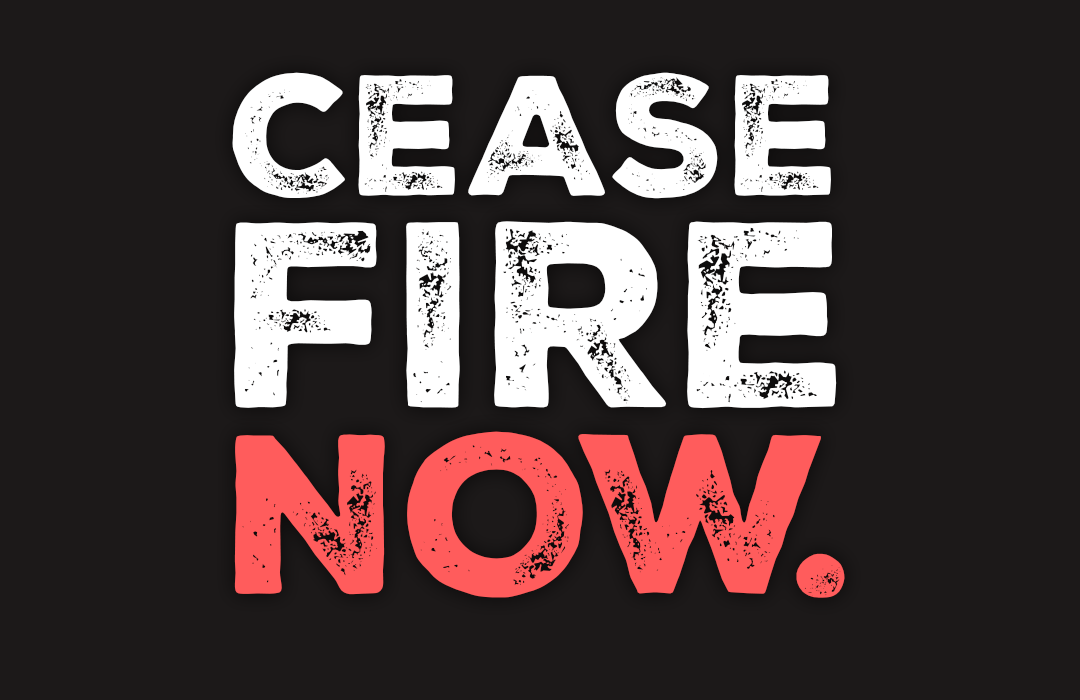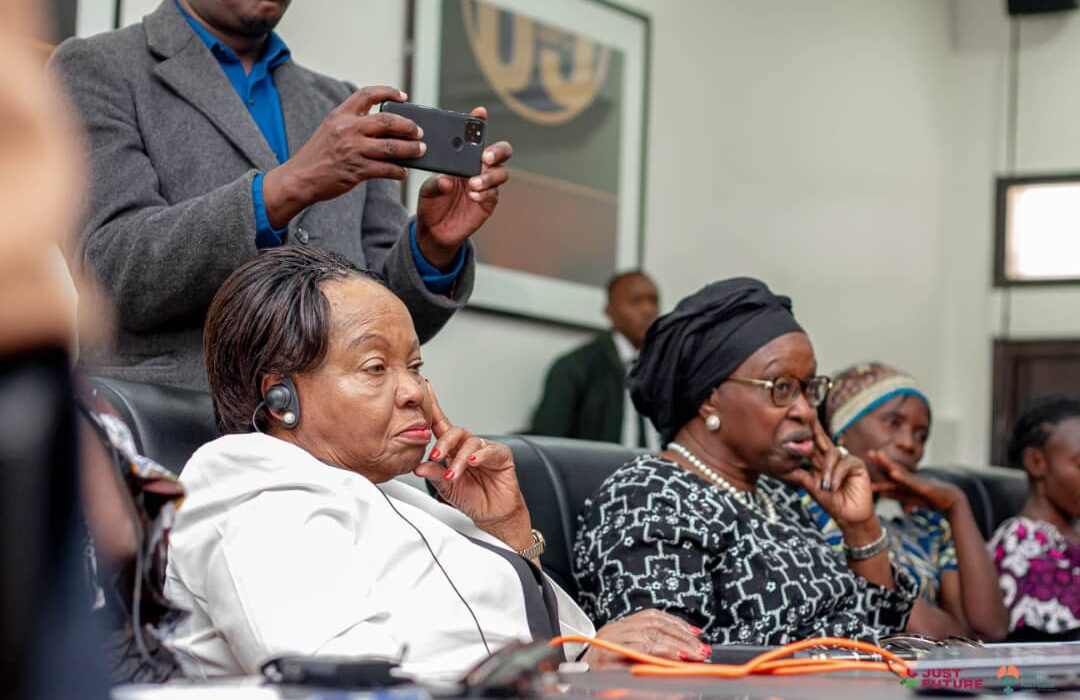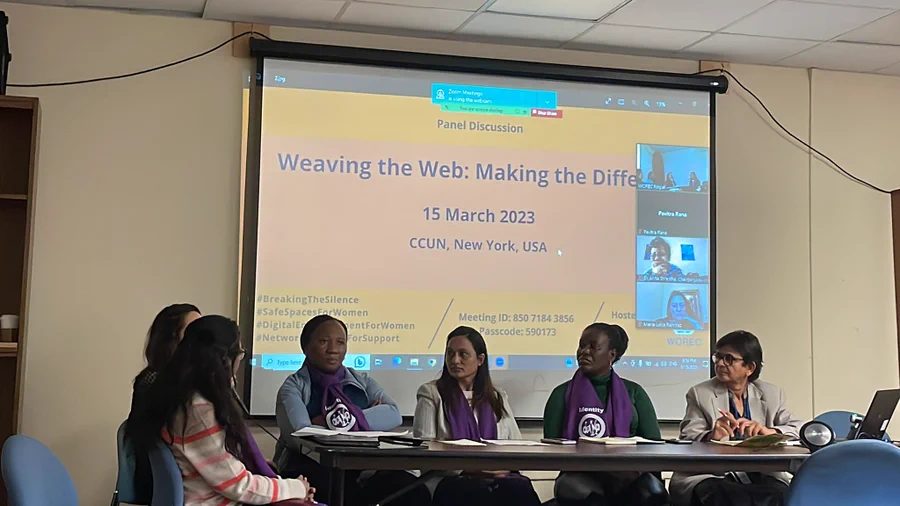Category: Latest News
Latest News
Embracing Transformation: The Journey of the Care Hub Retreat
In November 2023, a unique gathering unfolded by the serene backdrop of nature, marking a pivotal moment for a diverse group of individuals. The Care Hub Retreat, a meticulously designed experience, was more than an event; it was a transformational journey that delved deep into the realms of personal growth, emotional intelligence, and holistic well-being.
Read More “Embracing Transformation: The Journey of the Care Hub Retreat”
Joint letter to Emirati women leaders participating in COP28, requesting their public support for Sudanese women bearing the brunt of war, climate change and gender-based violence, ahead of and during the upcoming climate conference.
November 23, 2023
In recognition of your stature as women leaders and climate defenders* seeking to inspire generations to come, we are writing this letter to you to request your solidarity with the women of conflict-ridden Sudan who are bearing the heaviest brunt of the war, including kidnapping, enforced disappearance and subjugation to sexual violence and rape.
Publicly expressing your support for the women and girls in Sudan would send a strong message that this unfathomable violence is not justifiable, nor should be tolerated.
Communique for the Annual Women’s Conference on Women Peace and Security
In a significant stride towards fostering inclusivity and democracy in South Sudan, the 3rd Annual National Conference on Women, Peace, and Security was recently concluded at the Radisson Blu Hotel in Juba. The conference, held from October 25-26, 2023, brought together South Sudanese women leaders from all ten states and various partners. Under the theme “Building Inclusive Democracy: Women’s Leadership and Political Participation,”
The event yielded a joint communiqué outlining pivotal recommendations and initiatives aimed at empowering women in the political sphere.
Acknowledging Collaborative Efforts: The conference recognized the collaborative efforts of organizations such as Eve Organization, the National Ministry of Gender, Child and Social Welfare, Cordaid, Plan International, Christian Aid, HealthNet TPO, PAX and the Women’s International Peace Centre. Their successful organization of the event facilitated dialogue among over 200 delegates from South Sudan’s ten states.
Key Recommendations:
- Political Participation: Urging for expedited implementation of transitional security arrangements, the communiqué emphasizes the deployment of unified forces and payment of their salaries to ensure a safe environment for elections. Additionally, the reconstitution and operationalization of key bodies like the Political Parties Council and the National Constitutional Review Commission are stressed to ensure women’s inclusion.
- Legislative Support: The document highlights the importance of passing key bills, including the Women Enterprise Fund Bill and the Anti Gender Based Violence Bill, to protect women’s rights. It also calls for the Ministry of Interior to facilitate national ID acquisition for women and support their political participation through resources and initiatives.
- International Collaboration: Donors, UN agencies, and INGOs are urged to support women’s organizations financially, specifically during the constitution-making and electoral processes. Establishing funds for civic education, monitoring elections, and responding to gender-based violence incidents were emphasized.
- Civil Society Initiatives: Civil society organizations are encouraged to intensify civic education, advocate for the passing of crucial bills, organize conferences to reconcile women from different political backgrounds, and bridge the gap between senior and young women leaders through dialogues and mentorship programs.
Looking Ahead: The communiqué reflects a collective commitment to closing the gender gap in South Sudan’s political landscape. By empowering women, fostering inclusivity, and addressing systemic challenges, the nation takes a significant step towards building a democratic society where every voice matters. Through collaborative efforts and targeted initiatives, South Sudanese women are poised to play a pivotal role in shaping the country’s future.
Download Full Communique : Final-Communique-Annual Women’s Conference-Oct-2023
National Conference of Women leaders on Women, Peace and Security – South Sudan
In a resounding display of unity and determination, over 200 South Sudanese women leaders, alongside representatives from diverse sectors, gathered on October 25-26, 2023 in Juba for the 3rd Annual National Conference on Women, Peace, and Security. Against the backdrop of the conference’s theme, “Building Inclusive Democracy: Women’s Leadership and Political Participation,” the women articulated a powerful vision for a more democratic and inclusive South Sudan.
Read More “National Conference of Women leaders on Women, Peace and Security – South Sudan”
#CeasefireNow: Open Call for an Immediate Ceasefire in the Gaza Strip and Israel to Prevent a Humanitarian Catastrophe and Further Loss of Innocent Lives
#CeasefireNow: Open Call for an Immediate Ceasefire in the Gaza Strip and Israel to Prevent a Humanitarian Catastrophe and Further Loss of Innocent Lives
We have witnessed unfathomable death and destruction in the Gaza Strip and Israel. Thousands of people have been killed, injured, displaced, and nearly two hundred remain held hostage, including children and elderly.
In Gaza, the UN has said that water, food, fuel, medical supplies, and even body bags, are running out due to the siege. The UN warned that people – particularly young children – will soon start dying of severe dehydration. Neighbourhoods have been destroyed and turned into complete rubble. Palestinians in search of safety have nowhere to go. Many of those who relocated from northern Gaza to the south after the relocation order by the Israeli army were reportedly bombed as they attempted to flee or once they arrived in southern Gaza.
The events of the last week have led us to the precipice of a humanitarian catastrophe and the world can no longer wait to act. It is our collective responsibility.
On Sunday, October 15th, the United Nations Humanitarian Coordinator to the Occupied Palestinian Territory appealed to all parties to the conflict, and to Member States with influence, to urgently agree to a humanitarian ceasefire.
Today, we put our voices together and call on all Heads of State, the UN Security Council, and actors on the ground, to prioritize the preservation of human life above all else. During this ceasefire, we call on all parties to unconditionally:
- Facilitate the delivery of lifesaving assistance, including food, medical supplies, fuel, and the resumption of electricity and internet to Gaza, in addition to safe passage of humanitarian and medical staff
- Free all civilian hostages, especially children and elderly
- Allow humanitarian convoys to reach UN facilities, schools, hospitals, and health facilities in northern Gaza and commit to protecting them along with the civilians and staff inside them at all times
- Rescind orders by the Government of Israel for civilians to depart northern Gaza
- Allow patients in critical condition to be medically evacuated for urgent care
The UN Security Council, the UN Secretary General and all world leaders with influence must take immediate action to ensure a ceasefire comes into effect. It remains our only option to avert further loss of civilian life and humanitarian catastrophe. Anything less will forever be a stain on our collective conscience.
Civilians are not bargaining chips. Families need a chance to bury and mourn their dead. The cycle of violence against innocent civilians needs to stop.
International Peace Day – Actions for Women’s Peace: Prioritising Good Governance, Inclusivity and Non-violence
Women’s International Peace Centre joins the rest of the world in commemorating International Peace Day under this year’s theme, “Actions for Peace: Our Ambition for the #GlobalGoals.” The theme is a call to action that underscores our individual and collective roles in fostering a world where the Sustainable Development Goals (SDGs) are not just aspirations but realities—a world where the achievement of these goals paves the way for a culture of peace for all. We recognise that SDG16+[1] on peaceful, just and inclusive societies directly addresses the challenge of fragility and is a vital accelerator of Agenda 2030. However, progress on SDG16+ is poorer[2] than on almost any other SDG. Present global trends are discouraging as violence targeting civilians is becoming increasingly more common and deadly[3].
The Russia-Ukraine war has overshadowed all other conflicts, both in the sheer scale of violence and its deadliness, thus concealing a significant overall deterioration of the security situation in most other regions worldwide. The war, coupled with Russian military influence in Africa including the use of private military contractors like the Wagner Group in Mozambique and the Sahelian States of Mali, Burkina Faso, and Niger, has exacerbated conflicts in these regions, leading to increased instability on the continent. The proliferation of military bases, weapons and ammunitions as witnessed in Sudan has transformed[4] violent acts into more complex war-like scenarios.
In such conflicts, women often bear the brunt of violence and insecurity. For instance, as the war in Sudan rages on, gender-based violence (including conflict-related sexual violence) is a major concern, with an estimated 2.7 million women and girls at risk[5] due to the disruption of services and lawlessness as a result of the conflict. In Ethiopia’s Tigray region, 2,204[6] women and girls reported sexual violence to health facilities between November 2020 and June 2021. One of the one-stop centres reported that the victims in over 90% of cases were underage girls and estimated that visits to the centre had quadrupled since the conflict erupted in 2020.
Women in Africa continue to be relegated to the margins and their participation in peace negotiations is starkly hindered by the militarisation of peace processes. During the Luanda and Nairobi peace consultations on the situation in the Democratic Republic of Congo (DRC), women were significantly absent. Likewise, in the Chad peace talks in Doha in 2022, there was only one woman among the over 50 participants[7] present. In the current Sudan crisis, women have been significantly excluded from the formal ceasefire negotiations despite glaring evidence that they are effective in driving political transition and advocating for sustainable peace and stability.
The sobering reality in the DRC and South Sudan as the two countries prepare for elections serves as a stark testament to the persistent and deeply troubling trend of women’s ongoing exclusion from vital political processes. There are reports of rising violence against women, political leaders and activists in the DRC. Women also face barriers to vote, such as the lack of voter documentation required for registration and the general lack of information on electoral procedures, especially in the more isolated rural areas in North Kivu, Ituri and Mai-Ndombe which are currently under the control of armed groups. Women voters in rural and remote areas in South Sudan still lack access to credible information about the electoral process. Refugees and internally displaced women face challenges of restricted mobility and the lack of necessary identification documents to register and participate in the election process.
As the world celebrates this day of non-violence and cessation of hostilities, we re-echo the ideals envisioned by the United Nations Security Council Resolution 1325 on Women, Peace and Security. We emphasize that Actions for Women’s Peace include: advocating for women’s safe, meaningful and effective participation in peace processes as a fundamental component of sustainable peace; supporting efforts that prioritize non-violent conflict resolution and mediation, with a gender-sensitive approach that acknowledges the distinct experiences and needs of women in conflict zones; and standing against all forms of gender-based violence, including conflict-related sexual violence, which often escalates during conflicts, we therefore:
- Call for a shift towards promoting credible elections and good governance in Africa, including comprehensive electoral reforms, encompassing transparent voter registration and robust mechanisms to prevent electoral fraud which will strengthen the integrity of elections to increase public trust in democratic process. Strong institutions, the rule of law, and respect for human rights should also be promoted as fundamental components of good governance.
- Urge the prioritisation of inclusive and non-violent approaches to peacebuilding, with a central focus on dialogue as a means to achieve stable and sustainable ceasefires. These approaches should also aim to prevent the escalation of conflict and ensure the protection of civilians.
- Encourage governments to reduce military expenditures and redirect resources away from excessive military spending towards social services. This reallocation of resources should address the immediate needs of communities, rectify governance deficits, improve quality of life, and contribute to global stability.
[1] “SDG16+” refers here to the targets established under SDG16 as well as 36 targets from 7 other goals that directly measure an aspect of peace, justice or inclusion
[2] https://www.odi.org/sites/odi.org.uk/files/resource-documents/12424.pdf
[4]https://onpolicy.org/the-ukraine-russia-war-on-peace-and-security-challenges-in-africa/#:~:text=The%20Russia%2DUkraine%20war%20has,between%20Africa%20and%20the%20West.
[5] Sudan. 2022 HNO: IM Global GBV Country | Gender-Based Violence Area of Responsibility (gbvaor.net)
[6] Assessing the State of SRHR in Fragile and Conflict-Affected Countries in Africa
[7] 2022 Women and peace and security Report of the Secretary-General
Voices from South Kivu: Associations of Victims of Mass Crimes, Conflict Related Sexual Violence and Children born Out of Rape Meet AU Special Envoy on WPS to Advocate for Peace and Justice
Democratic Republic of Congo (DRC) has been a land marred by decades of conflict, instability, and the devastating consequences of war. Among the countless stories of resilience and hope emerging from this region, one group stands out – the associations of victims of serious crimes and conflicts, along with the children born of rape, in someites of South Kivu.
Why Is the Maputo Protocol Important to women of South Sudan?
Photo by : African Union
South Sudan’s President, H.E. Salva Kiir, signed the Protocol to the African Charter on Human and Peoples’ Rights on the Rights of Women in Africa (Maputo Protocol), one of the most advanced treaties on the protection of women’s and girls’ rights anywhere in the world into law on 24th February 2023 which was later launched on 16 July 2023 in the country.
Read More “Why Is the Maputo Protocol Important to women of South Sudan?”
Feminist Peace & Movement Building in the Digital Age
The 67th UN Commission on the Status of Women (CSW67) took place from the 6th to 17th March , 2023 under the theme “Innovation and technological change, and education in the digital age for achieving gender equality and the empowerment of all women and girls”
Women’s International Peace Centre Peace hosted a parallel event on feminist peace & movement building in the digital age on 10th March.
The event brought together Women Human Rights Defenders (WHRDs) and peacebuilders from Burundi, South Sudan, Uganda and Nepal to share their experiences with access to and use of digital technologies to advance women’s leadership and feminist peace.
Discussions highlighted the specific cases of young women, refugee women, women in rural areas and women in advocating for peace in contexts with shrinking civic space, limited digital infrastructure and challenges of access to and safe use of digital platforms.
For instance, in South Sudan, women used digital platforms to advocate for inclusive peace processes. They organized and held virtual meetings, discussed transitional justice issues, drafted statements and shared them using social media to decision makers for action.
Digital technologies also enhanced women’s power to share their experiences on social media, to discuss violations and call for action in real life
For many women and girls, the prospects/opportunities of digitalization are limitless with so many benefits which include access to information and knowledge sharing, the ability to build movements and fostering connections with others. However, the same is true for the dangers associated with it.
Women peacebuilders and vocal women are oftentimes threatened, face online trolls, backlash and are forced to endure character assassinations and online sneak campaigns. These pose great challenges that hinder women’s empowerment in digital skills.
By end of the meeting, women’s innovations, good practices and recommendations for ensuring diverse conflict-affected women are included in efforts to advance gender equality and women’s empowerment in the context of innovation and technological change in the digital age were spotlighted.
Find more videos of women peace builders here;
https://studio.youtube.com/video/-7fLebrAxEw/edit
https://studio.youtube.com/video/IpgvDdIIvL4/edit
https://studio.youtube.com/video/xSrgeOccx8I/edit

